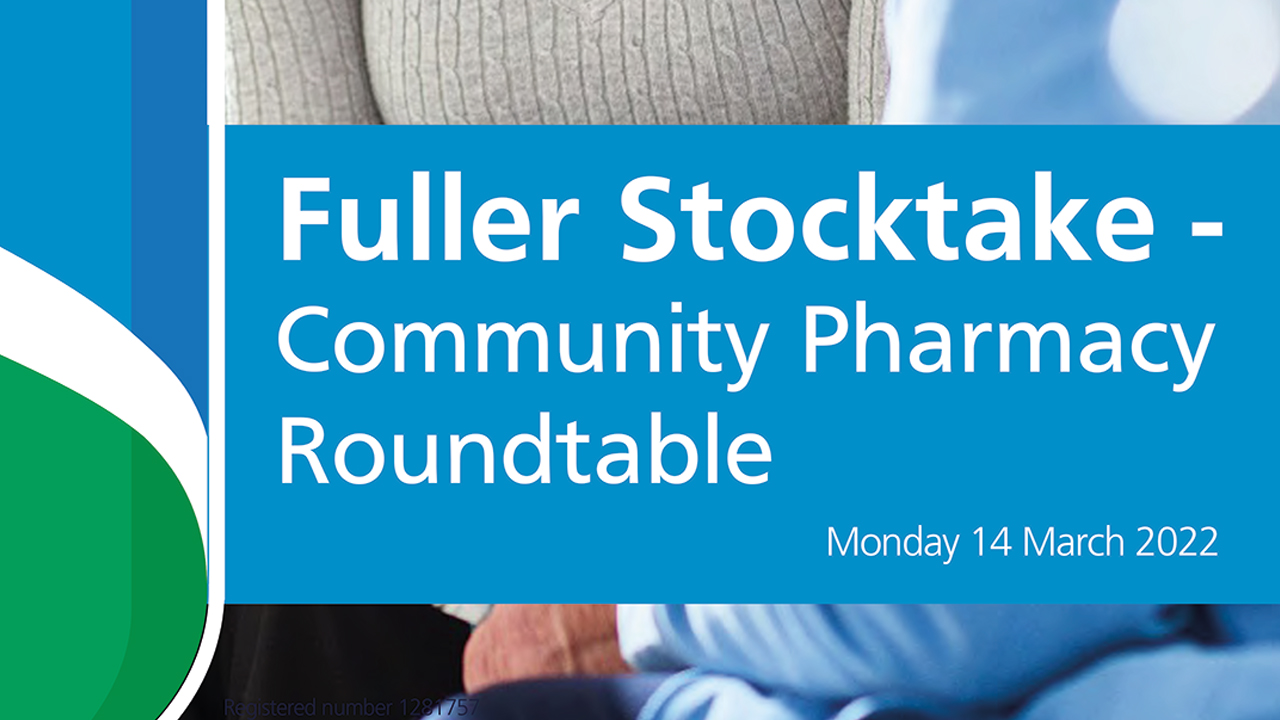In Opinion
Hear the opinions and comment from some of the top names in pharmacy. Make sure you get in touch and share your opinions with us too.Bookmark
Record learning outcomes
The Fuller report has now been published and it is timely to reflect on what we can do in community pharmacy to leverage it for our sector and the patients we look after.
The stocktake covered a lot about what is not working in terms of primary care delivery, especially around access and continuity. What also emerged was a consensus on what could be done differently. The report calls for integrated neighbourhood ‘teams of teams’ to evolve from primary care networks and highlighted roles for community pharmacy in urgent care and prevention including early cancer diagnosis.
The report goes on to say that the formal establishment of ICSs could not be more timely. Alongside a commitment to local action, the Fuller report sets out a requirement for additional support from Government and NHS England, targeted at fixing workforce supply, estates and digital infrastructure. The successful implementation of the vision set out will also require a pivot to locally-led action.
What was the Fuller Stocktake?
In November 2021, NHS England chief executive Amanda Pritchard asked Dr Claire Fuller, chief executive designate at Surrey Heartlands ICS and a GP, to undertake a stocktake on integrated primary care, looking at what is working well, why it is working well and how implementation of integrated primary care (incorporating the current four pillars of general practice, community pharmacy, dentistry and optometry) can be accelerated across systems.
What next?
The Fuller report lists a framework of 15 shared actions and we need to clearly define the community pharmacy offer and opportunity in each:
- Develop a single system-wide approach to managing integrated urgent care to guarantee same-day care for patients and a more sustainable model for practices
- Assist systems with integration of primary and urgent care access, specifically looking at the role of NHS 111
- Enable all PCNs to evolve into integrated neighbourhood teams, supporting better continuity and preventive healthcare as well as access, with a blended generalist and specialist workforce drawn from all sectors
- Co-design and put in place the appropriate infra-structure and support for all neighbourhood teams across their functions including digital, data, intelligence and quality improvement, human resources, finance, workforce plans and models, and estates
- Develop a primary care forum or network at system level, with suitable credibility and breadth of views, including professional representation
- Embed the primary care workforce as an integral part of system thinking, planning and delivery
- Include primary care as a focus in the forthcoming national workforce strategy to support ICSs to deliver this report
- Pivot to system leadership as the main driver of primary care improvement and development of neighbourhood teams in the years ahead
- Improve data flows
- Develop a system-wide estates plan to support fit-for-purpose buildings for neighbourhood and place teams delivering integrated primary care
- DHSC and NHSE should provide additional, expert capacity and capability to help offer solutions to the most intractable estates issues
- Create a clear development plan to support the sustainability of primary care and translate the framework provided by NHSE into reality, across all neighbourhoods
- Work alongside local people and communities in the planning and implementation of the actions set out above, ensuring that these plans are appropriately tailored to local needs, taking into account demographic and cultural factors
- Set out how the actions highlighted for NHS England will be progressed
- DHSC and NHS England should rapidly undertake further work on the legislative, contractual, commissioning, and funding framework.
Sensible voices
The NPA was pleased with the final Fuller report and proud to have convened many sensible voices from community pharmacy at our Fuller dedicated roundtable event.
We believe the report helps open the door for community pharmacy to be better positioned within the emerging integrated primary care journey and specifically within ICSs.
National and local leadership bodies should now be pulling together and actively working on influencing ICSs for the benefit of pharmacy and the system as a whole.
But remember the great Welsh writer and thinker Raymond Williams’s famous contention: that to be radical is “to make hope possible rather than despair convincing”.
Pharmacy engagement in ICSs will not be left to chance
Community pharmacy should be involved in key decisions in neighbourhoods and systems to help reduce workload and increase patient access, a meeting of senior NHS officials and primary care providers, including the NPA, concluded.
The Fuller Stocktake: Community Pharmacy Roundtable report is based on a meeting hosted by the NPA on behalf of the NHS team running a key review of primary care integration, the so-called Fuller Stocktake.
One of the NHSE officials told participants at the meeting: “You shouldn’t have to fight your way into the right conversations and the right tables to sit around to influence decision making and for the wider NHS to really leverage your considerable skills and expertise…We don’t want to leave it to chance that community pharmacy is in the right conversations. If that was the case, then I would consider the [Fuller] work to have failed.”
The discussions in the roundtable ranged across prevention, urgent and complex care. Broad recommendations to integrated care systems included:
- Work at scale to best target and serve patients and make every contact count
- Ensure true parity between the pharmacy sector, wider primary care and across the system
- Support and remunerate the training and development of community pharmacists/pharmacy leaders
- Recognise the critical enablers of data, digital, training and education, and leadership opportunities
- Keep community pharmacy involved in future decisions and planning at system level.
The NPA is sending the report to local pharmaceutical committees and other local pharmacy leaders, as a tool to help them engage with integrated care systems.

